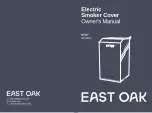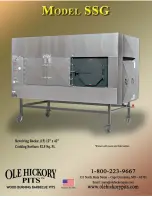
Installation and connection
en
7
Use pots and pans with flat bases.
¡
Uneven bases increase energy consumption.
Use cookware suited to the quantity of food.
¡
Large items of cookware containing little food need
more energy to heat up.
Cook with only a little water.
¡
The more water that is contained in cookware, the
more energy is required to heat it up.
Turn down to a lower power level early on. Use a suit-
able ongoing power level.
¡
If you use an ongoing power level that is too high,
you will waste energy.
¡
Unused residual heat increases energy consump-
tion.
4 Installation and connection
You can find out where and how best to install your ap-
pliance here. You will also learn how to connect your
appliance to the power supply.
4.1 Electrical connection
The appliance must be connected to the mains by a li-
censed expert. You must comply with the requirements
of your electricity supplier.
¡
If the power cord of this appliance is damaged, it
must be replaced by the manufacturer, the manufac-
turer's Customer Service or a similarly qualified per-
son in order to prevent any risk.
¡
Any damage arising from the appliance being con-
nected incorrectly will invalidate the warranty.
Information on the electrical connection by the
installer:
¡
If the plug is not accessible following installation, an
all-pole isolating unit with a contact clearance of at
least 3 mm must be available on the installation
side. This is not necessary if the appliance is con-
nected via a plug that is accessible to the user.
¡
Electrical safety: The cooker corresponds to safety
class I and may only be used in conjunction with a
safety earth terminal.
¡
To connect the appliance, use H 05 VV-F cables or
other equivalent cables.
Important information about the electrical
connection
Note the following information and ensure that:
WARNING ‒ Risk of electric shock!
There is a risk of electric shock if you touch live com-
ponents.
▶
Hold the mains plug with dry hands only.
▶
Never pull out the mains plug from the socket while
the appliance is in operation.
▶
Pull out the power cable directly at the plug and
never by pulling the power cable as this may be-
come damaged.
¡
Fit the mains plug and socket together.
¡
The mains plug can be accessed at all times.
¡
The cross section of the cable is sufficient.
¡
The mains cable is not kinked, crushed, modified or
severed.
¡
If required, the mains cable must only be replaced
by a qualified electrician. A replacement mains
cable is available from the after-sales service.
¡
Do not use any multiple plugs or multi-connectors
and extension cords.
¡
The earthing system is correctly installed.
¡
If using a residual current device, only use one that
bears the mark
. The presence of this mark is the
only way to be sure that it fulfils all the applicable
regulations.
¡
The mains cable does not come into contact with
heat sources.
4.2 Setting up the appliance
Place the appliance on a smooth surface.
Never set up the appliance behind a decorative door or
the door of a kitchen unit. There is a risk of overheat-
ing.
Setting the base height of the appliance
Set the base height in accordance with the functions of
your appliance.
Adjusting the height of the appliance with fixed
drawers
If your appliance has fixed drawers, set the base height
of your appliance as follows.
Note:
The appliance has height-adjustable feet. This allows
the appliance to be raised approx. 15 mm from the
ground.
¡
The feet are located at the front and rear on the un-
derside of the appliance.
¡
Raise or lower the feet by turning the feet with an Al-
len key until the appliance is in a horizontal position.
Setting the base height of the appliance with a
removable drawer
If your appliance does not have height-adjustable feet
and the drawer is removable, set the base height of
your appliance as follows.
1.
Pull out the plinth drawer and lift it up and out. There
are adjustable feet at the front and rear on the in-
side of the plinth.








































